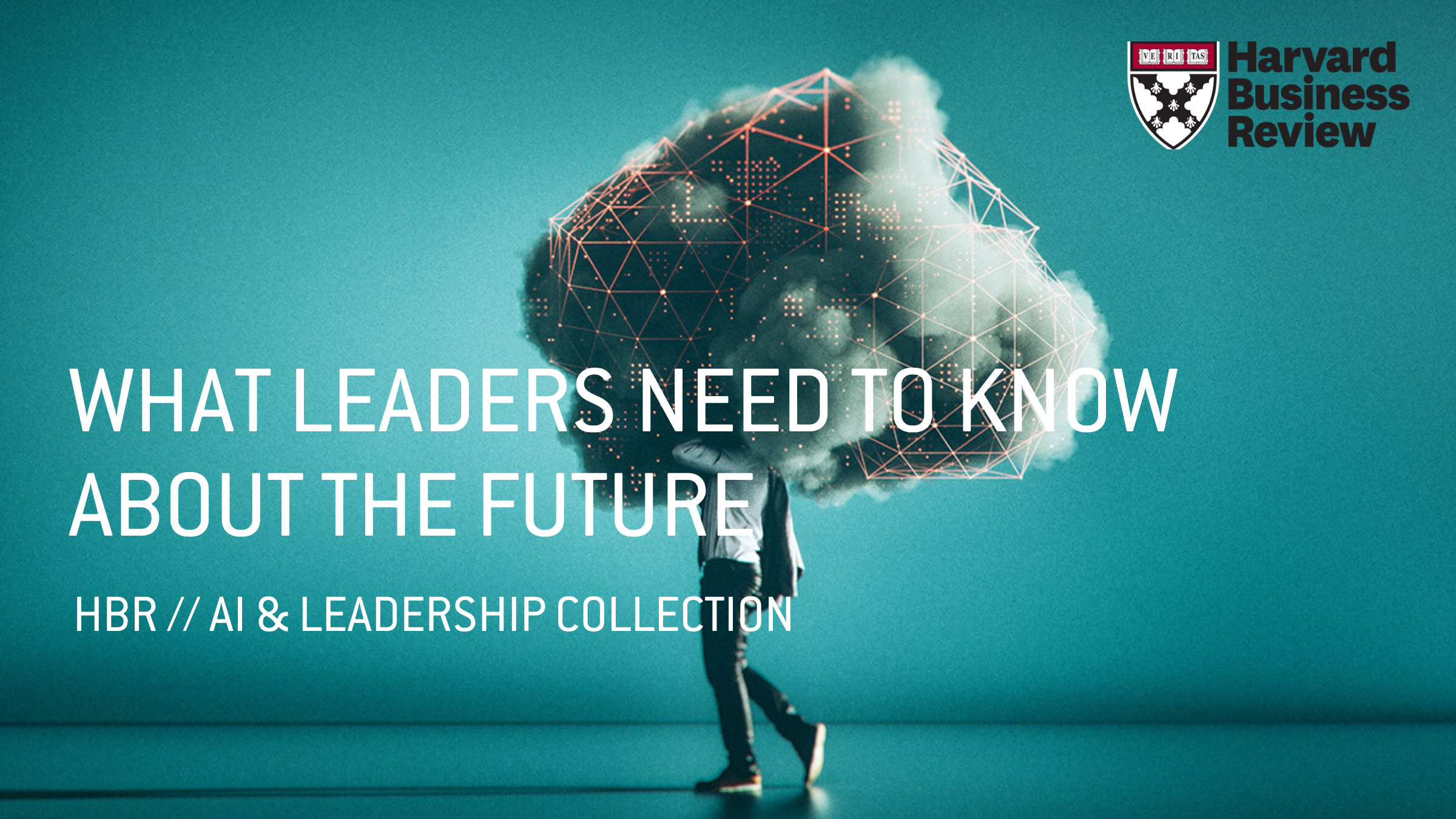
There never has been a more challenging time to be a leader. Everything that can change, is changing. Customers are shifting their behaviors, new and disruptive business models are reshaping industries - and everywhere you look, technology is transforming our experience of the world and how we do things.
In this collection of articles written for the Harvard Business Review, futurist Mike Walsh explores the implications of the Algorithmic Age, and the challenges and opportunities raised by AI. In his view, the leaders of the future need to embrace an entirely new set of skills, capabilities and mindsets in order to be successful. We have to become algorithmic rather than analogue leaders - which means we have to both cultivate a deep understanding of human complexity as well as a flair for computational thinking.
Here are some recommended articles by Mike Walsh:
How to Navigate the Ambiguity of a Digital Transformation
A successful digital transformation can be hard to predict or plan; it is often the result of new customer interactions, new combinations of talent and teams, unexpected alliances with new partners, and entirely new business models. These components are constantly evolving, shaped, and influenced by algorithmic systems, aggregated in such a way that their collective behavior is more than the sum of their parts. More is different. Just as water becomes ice when cold enough, or graphite turns into diamond under enough pressure, at a critical point, more data and algorithms can transform an organization or an industry into something else entirely. That raises a question for leaders: how do you navigate a transformation from what you know to what you have yet to define? What you need is an emergent approach to digital transformation, focused on the three principles described in this article
AI Should Change What You Do — Not Just How You Do It
Few leaders would dispute the fact that business today is driven by data and smart algorithms. Yet, rather than real digital transformation, many instead pursue digital incrementalism, using automation to cut costs or, worse — cut jobs. Doing so might buy you some time from impatient shareholders, but it will be short-lived unless you can face the challenge: How do you reimagine what you do for a new era of AI-powered competition?
The Key to Building a Successful Remote Organization? Data.
The Covid-19 crisis forced many businesses to suddenly adapt to having an entirely remote workforce. And once we all got past the novel challenges of family interruptions, #funnycatvideos, and virtual etiquette, a more complex problem raised its head: How do you work together when you are, in fact, alone?
Algorithms Are Making Economic Inequality Worse
We fear a future where robots take our jobs, but what happens when a significant portion of the workforce ends up in algorithmically managed jobs with little future and few possibilities for advancement?
Develop a “Probabilistic” Approach to Managing Uncertainty
Our new world of sensors, smartphones, and connected devices means more data than ever — but does it also mean that it’s getting easier to make well-informed decisions? Quite the contrary, in fact. What’s more important than how much data you have is how it frames the way you think. Too often, leaders under pressure to appear decisive attempt to deal with complex issues with simple rules or analogies, selectively using data to justify poor judgment calls. But what if rather than trying to be right, you could be less wrong over time?
Why Business Leaders Need to Understand Their Algorithms
One of the biggest sources of anxiety about AI is not that it will turn against us, but that we simply cannot understand how it works. The solution to rogue systems that discriminate against women in credit applications or that make racist recommendations in criminal sentencing, or that reduce the number of black patients identified as needing extra medical care, might seem to be “explainable AI.” But sometimes, what’s just as important as knowing “why” an algorithm made a decision, is being able to ask “what” it was being optimized for in the first place?
Does Your AI Have Users’ Best Interests at Heart?
Ethical decisions are rarely easy. Now, even less so. Smart machines, cheap computation, and vast amounts of consumer data not only offer incredible opportunities for modern organizations, they also present a moral dilemma for 21st century leaders too: Is it OK, as long as it’s legal?
When Algorithms Make Managers Worse
One of the newest dilemmas for leaders in an age of AI is when and how to use algorithms to manage people and teams. AI, algorithms, and automation might allow you to manage more people at scale, but that doesn’t mean they will make you a better leader. In fact, quite the opposite may be true: technology has the potential to bring out the very worst in us.

